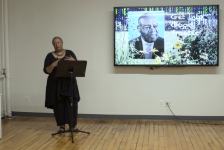Emmanuel Didier is a landscape architect, artist, and the founding principal of Didier Design Studio. He teaches graduate level design courses at the University of Colorado Denver in Auraria, CO where his current research project, “The Living Urban Campus Initiative”, is coming to life in partnership with the dean of the College of Architecture and Planning. The initiative aims to uncover the possibilities of designing within “urban steppe” landscapes, while simultaneously creating enjoyable campus spaces for students, faculty, and visitors.
At the Land8x8 Lightning Talks in Denver, Didier set the scene by flashing two images on the screen. On the left, you see lush turf lawn covering Harvard’s campus in Cambridge, while on the right, you see an image of UC Denver’s campus with the same landscape typology imposed – flat, irrigated, green.
“Why do we feel like we need to paint the campus with turf and trees… when actually, where we live is in a steppe region?”, Didier inquires.
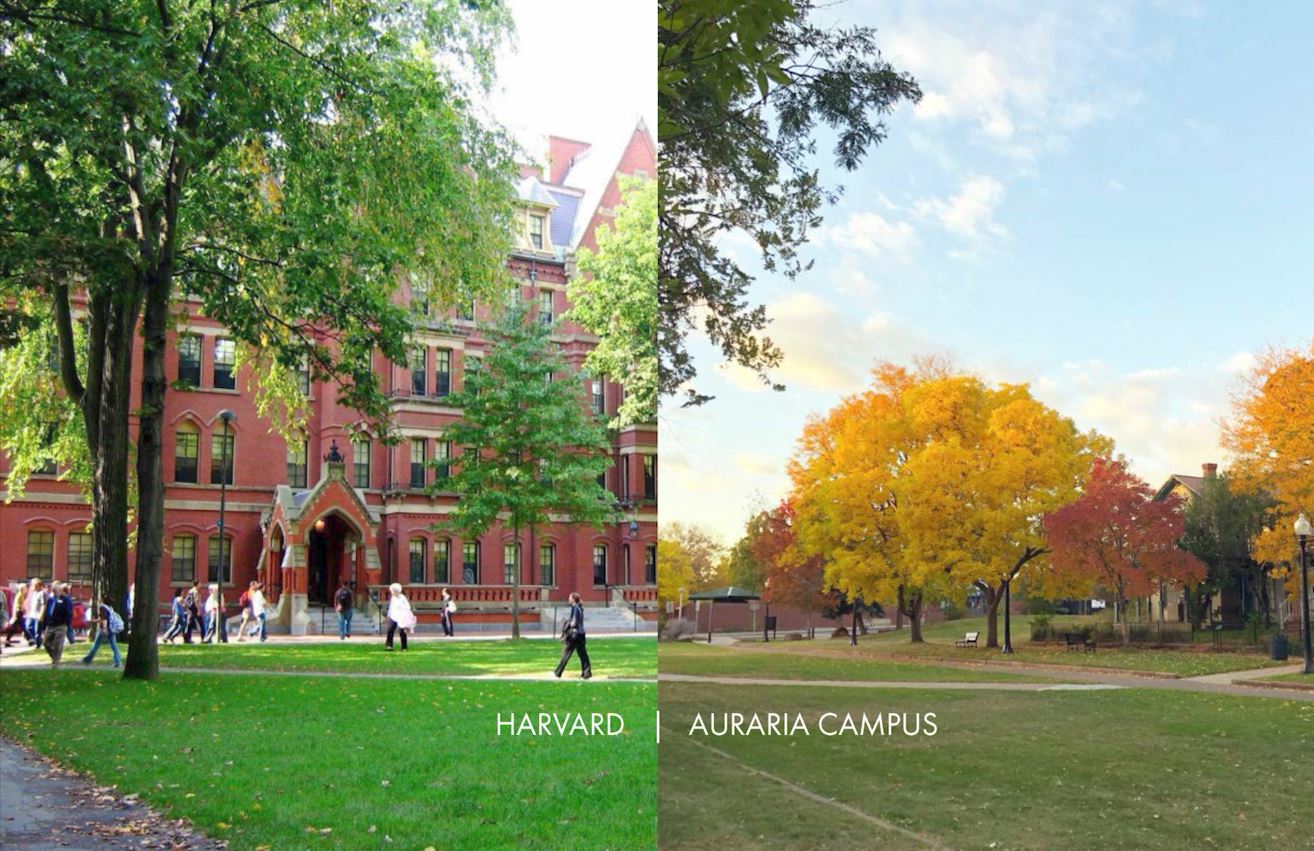
Image: Emmanuel Didier
Didier’s interest in Colorado’s unique landscape was fostered while designing a garden with the Denver Botanic Garden to showcase the native steppe landscape region. Researching steppe landscapes around the world (Patagonia, Central Asia, South Africa and North America), Didier notes that these biomes all underwent extreme transformations. Once ocean seabeds, the land was uplifted with the creation of mountainous terrain. Steppe landscapes offer inspiration as we aim to adapt and mitigate the climate and biodiversity crises.
“When you look at the making of a city, where you have so much density and pavement, you are completely changing the conditions anyways, so it it not about taking the steppe landscape and pushing it in the city, but learning from the science and the ecology of how the landscape functions and how we can celebrate that place.”
Emmanuel looks forward to bringing the goals of ‘The Living Urban Campus Initiative’ to realization with the help of designers across the state:
- Acknowledge the displacement of previous communities and reconnect the land to its roots, cultural heritage, and ecological context of the steppe biome
- Nurture the diversity and inclusivity of places for ALL
- Connect the campus to the city and vice versa, while maintaining a true sense of place and identity
- Create a regenerative environment that conserves water, addresses climate change, supports biodiversity and urban habitats, and offers a model from which to learn
- Promote health and well-being through outdoor learning environments and programs
- Foster a vibrant, fun, inspiring place that is enjoyed by students, staff, faculty, and visitors
- Provide hands-on experiential learning and research opportunities for CU Denver students and faculty
The mission of the Urban Campus Initiative is to bring more life (of all kinds) to the UC Denver campus, creating a healthy, vibrant and inspiring place that enriches the quality of life for all who experience it. Existing in a semi-arid climate, the region’s wildfires and lack of water create great impedance to reimagine the current campus landscape fabric in the face of continued development and necessary climate adaptation.
—
This video was filmed on January 19, 2023 as part of the Land8x8 Lightning Talks sponsored by Anova Furnishings.

Published in Blog, Cover Story, Featured




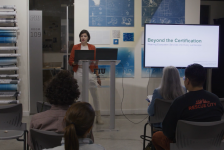
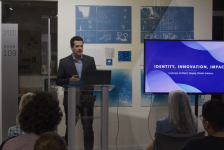
![10 Billion Mouths [Video]](https://land8.com/wp-content/uploads/2018/06/michael-grove-land8x8-224x150.png)

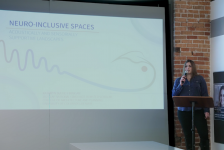
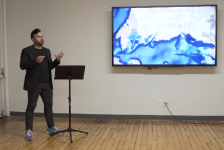
![Deep Collaboration: Ecology, Research, Design [Video]](https://land8.com/wp-content/uploads/2018/05/stephanie-carlisle-224x150.png)
![Workaround [Video]](https://land8.com/wp-content/uploads/2018/03/richard-jones-land8x8-224x150.png)
